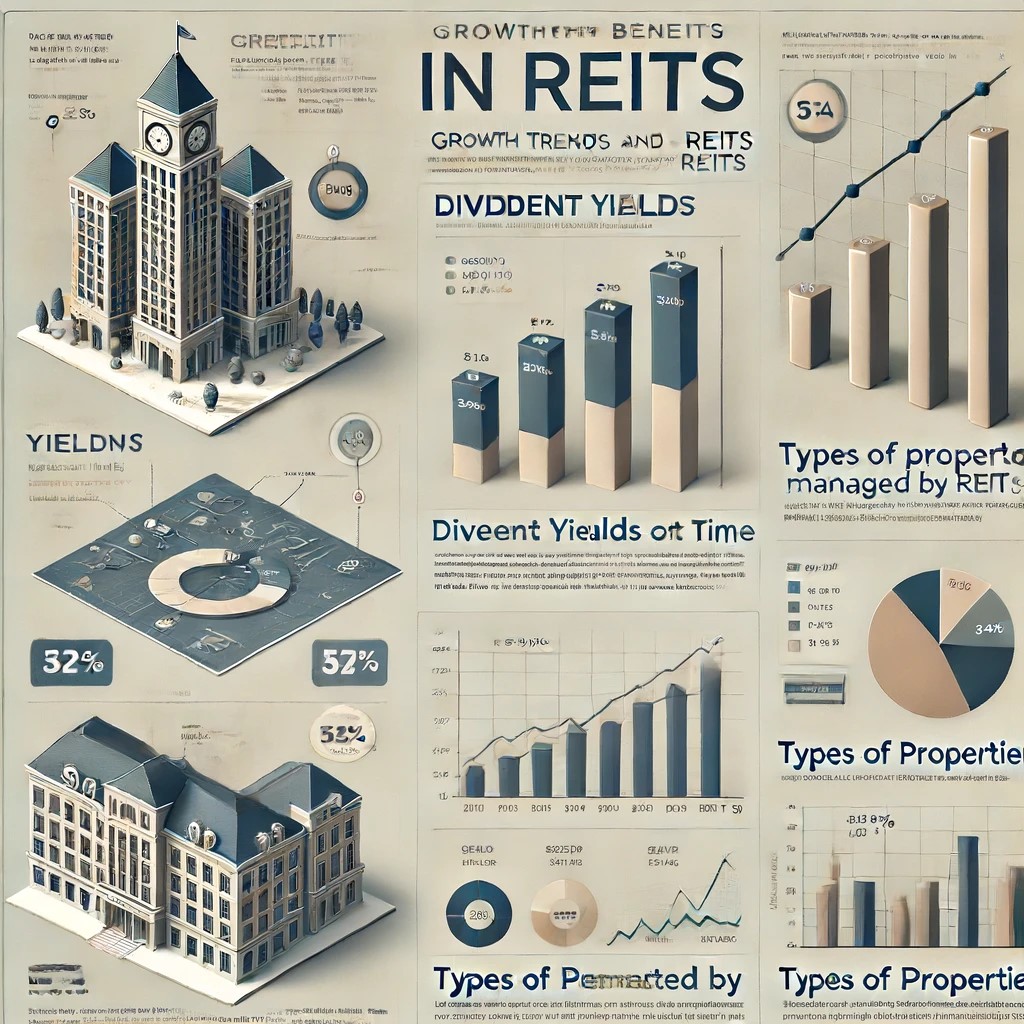Real Estate Investment Trusts (REITs) have become a staple in diversified investment portfolios, particularly for those seeking regular income and long-term capital appreciation. REITs allow individuals to invest in large-scale, income-producing real estate without having to buy, manage, or finance any properties themselves. This article delves into the nuances of REITs, examining current trends and what investors might expect in the future.

Understanding REITs
REITs are companies that own or finance income-producing real estate across a range of property sectors. These companies must meet several requirements to qualify as REITs, including paying out at least 90% of their taxable income to shareholders as dividends. This requirement makes REITs highly attractive for income-seeking investors.
Current Trends in REITs
1. Growth in E-commerce: The shift towards online shopping has significantly impacted the REIT market, particularly within the industrial and logistics sectors. Warehouses and distribution centers are in high demand, and REITs that focus on these assets have seen substantial growth. This trend reflects broader changes in consumer behavior and the retail landscape.
2. Urbanization and Housing Demand: Urbanization continues to drive demand for residential and commercial real estate. Residential REITs, which invest in apartments, student housing, and manufactured homes, have benefited from rising rent prices in many urban centers. Similarly, office space REITs in major cities have seen variable performance depending on local job markets and economic conditions.

Investment Considerations
1. Diversification Benefits: REITs offer diversification within real estate portfolios due to their investment in a variety of properties. For investors looking to mitigate risk, REITs provide exposure to real estate without the need to directly manage properties.
2. Tax Considerations: While REIT dividends provide a steady income stream, they are taxed as ordinary income, which can be higher than the capital gains tax rates applied to other investments. Investors should consider this when incorporating REITs into their portfolios.
3. Interest Rate Sensitivity: REITs are typically sensitive to interest rate changes. Rising interest rates can increase borrowing costs and reduce profit margins, potentially leading to lower dividend payments. However, some sectors, like residential REITs, may be less affected by interest rate fluctuations.

Future Predictions
1. Technological Integration: The future of REITs will likely be shaped by technological advancements. Smart buildings, energy-efficient systems, and enhanced data analytics will play crucial roles in managing properties more effectively and increasing their value.
1. Global Expansion: Global economic growth and the increasing accessibility of international markets may encourage more REITs to invest in overseas properties, offering investors exposure to global real estate markets.
Conclusion
REITs remain a compelling investment choice for those looking to diversify their portfolios and generate regular income. By staying informed of the latest trends and understanding the unique characteristics of REITs, investors can strategically include these instruments in their investment strategies, aligning with both income goals and risk tolerance. As the landscape evolves, staying adaptive and informed will be key to leveraging REITs effectively in any well-rounded investment portfolio.





